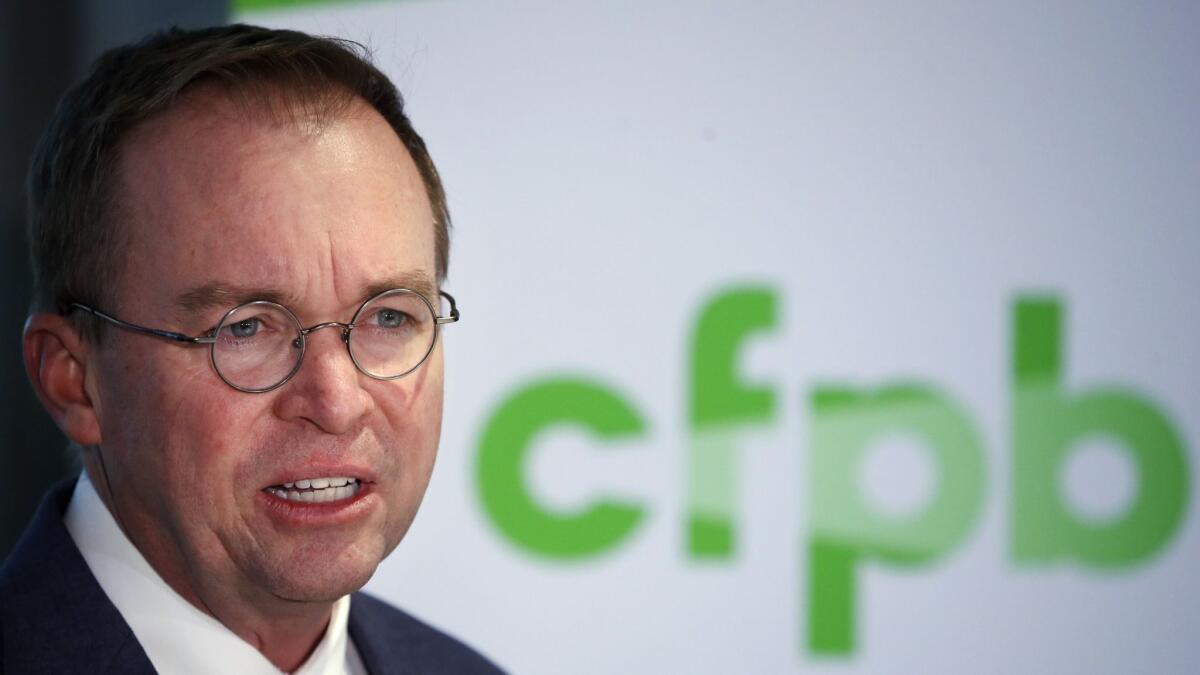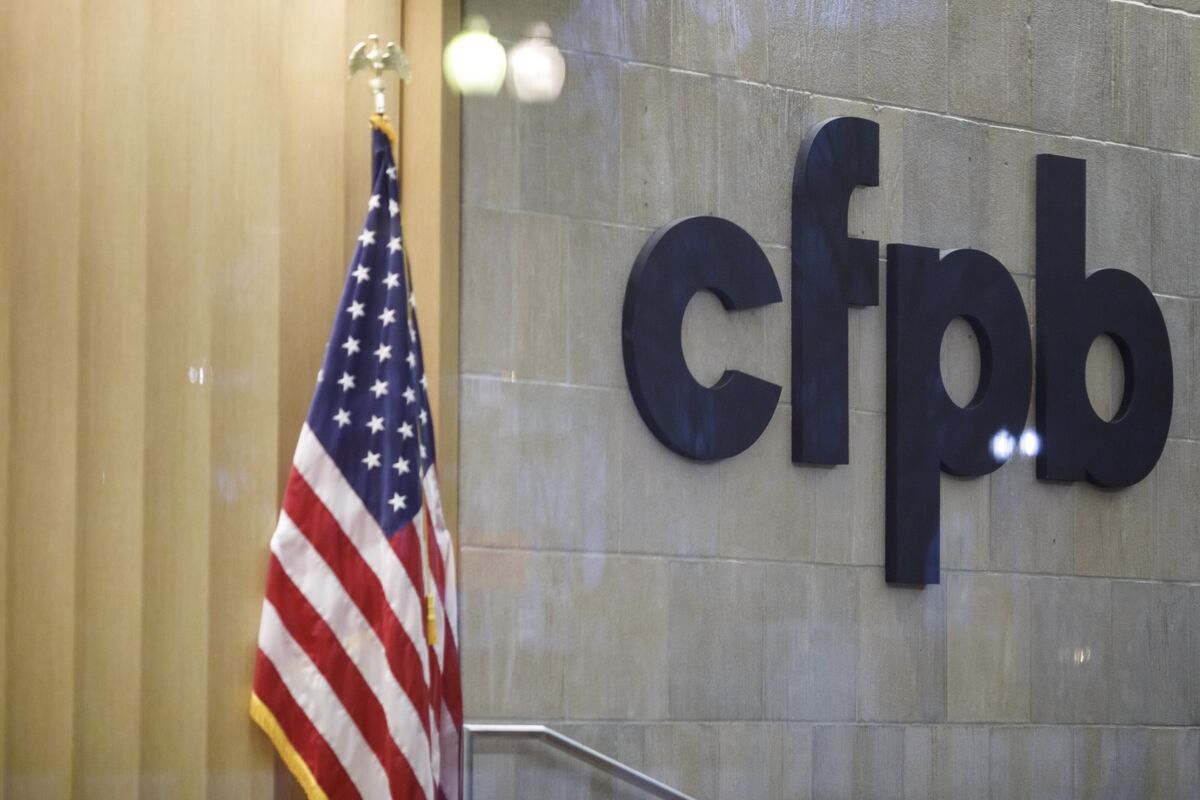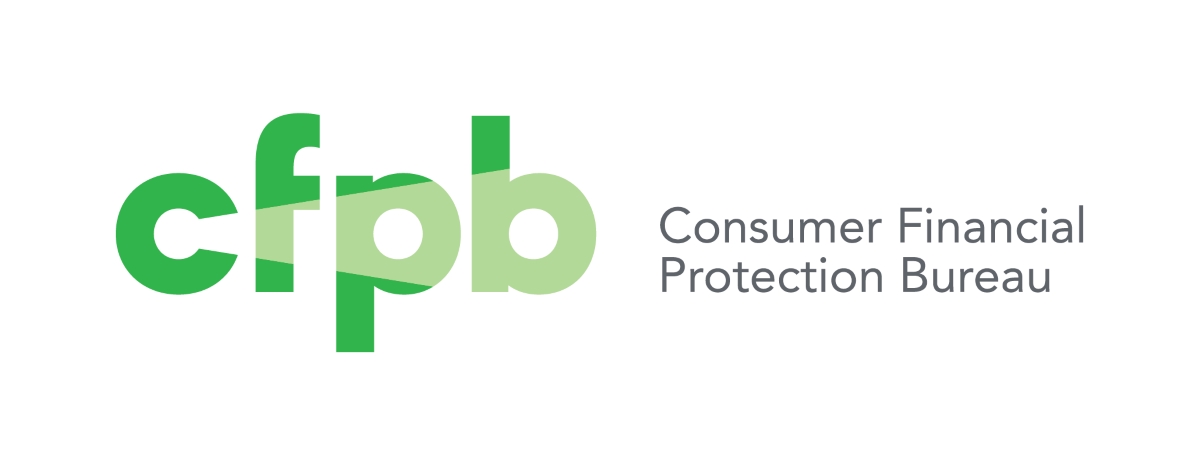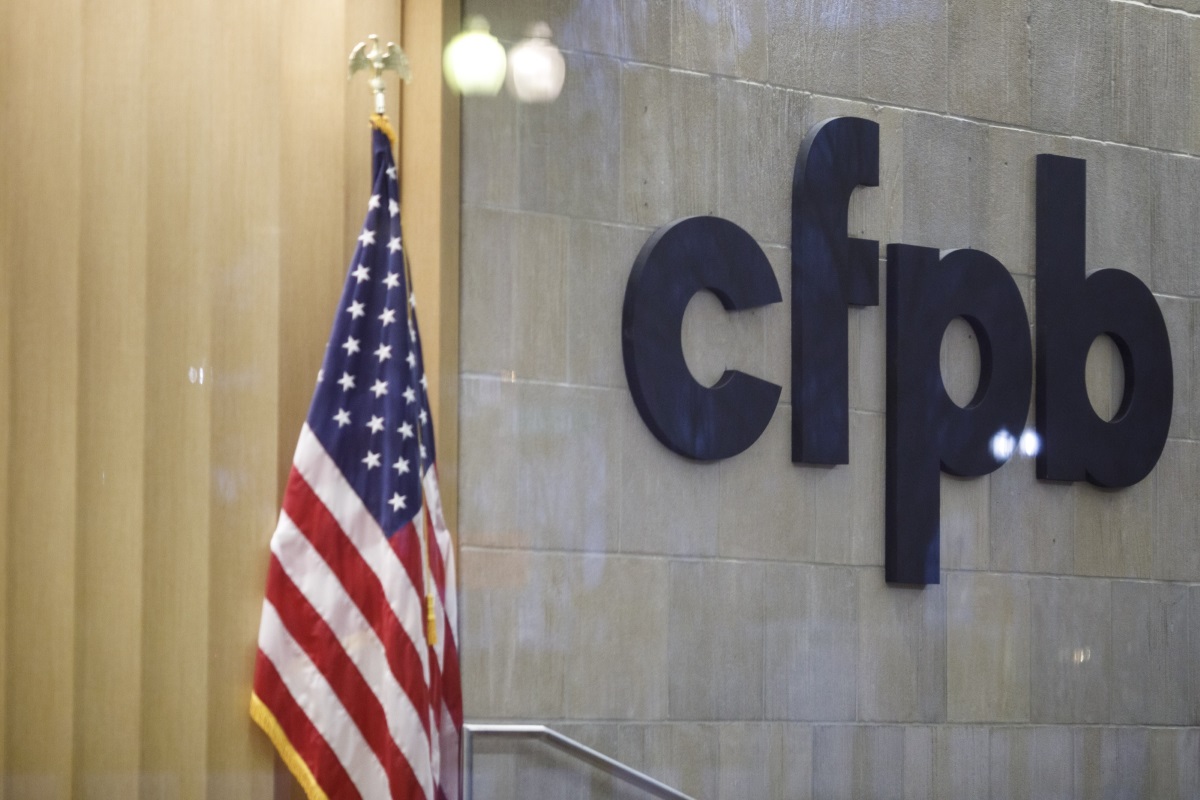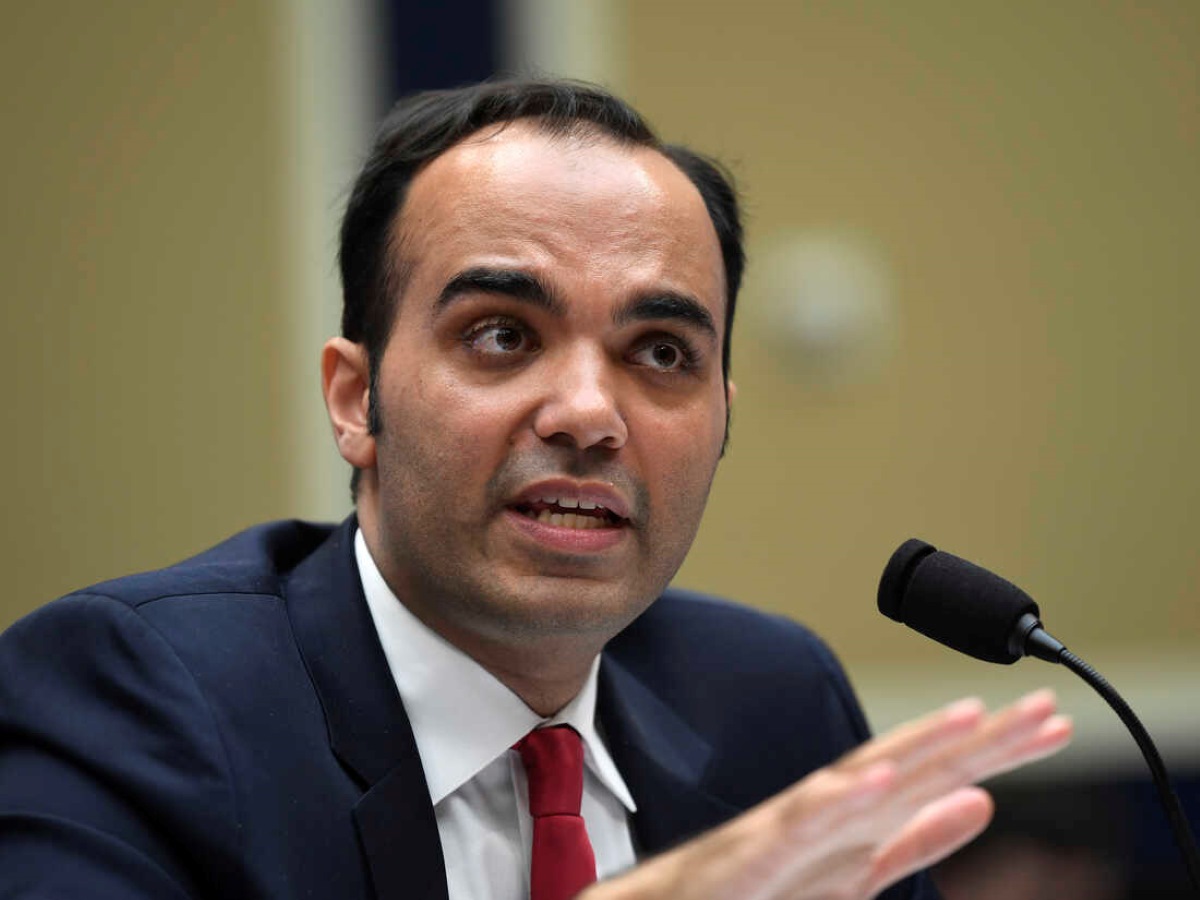Home>Finance>Why Is The Consumer Financial Protection Bureau Necessary?


Finance
Why Is The Consumer Financial Protection Bureau Necessary?
Modified: March 1, 2024
Discover why the Consumer Financial Protection Bureau is essential in safeguarding consumer rights and promoting financial stability. Explore the role of finance in protecting individuals against fraud, unfair practices, and economic instability.
(Many of the links in this article redirect to a specific reviewed product. Your purchase of these products through affiliate links helps to generate commission for LiveWell, at no extra cost. Learn more)
Table of Contents
Introduction
The Consumer Financial Protection Bureau (CFPB) is a government agency established in 2011 with a primary goal to protect and educate consumers in the financial marketplace. With a focus on promoting fair and transparent financial practices, the CFPB plays a crucial role in ensuring the rights and welfare of consumers.
In the wake of the 2008 financial crisis, it became evident that there was a need for stronger regulations to prevent abusive and deceptive practices by financial institutions. The CFPB was created as part of the Dodd-Frank Wall Street Reform and Consumer Protection Act to address this need. It serves as a watchdog, aiming to level the playing field for consumers and hold financial institutions accountable for their actions.
Through its regulatory and enforcement powers, the CFPB works towards safeguarding consumers from various financial risks, such as misleading product advertisements, unfair fees, and predatory lending. It also strives to provide resources and tools that empower consumers to make informed financial decisions and protect themselves against fraudulent practices.
By understanding the vital role of the CFPB and its impact on the financial landscape, consumers can gain a better understanding of their rights and how they can navigate the complex world of personal finance. This article will dive deep into the different aspects of the CFPB’s role and why it is necessary in today’s financial landscape.
Role of the Consumer Financial Protection Bureau
The Consumer Financial Protection Bureau (CFPB) plays a crucial role in protecting consumers by enforcing federal consumer financial laws and promoting fair and transparent financial practices. Let’s explore the key responsibilities of the CFPB:
- Regulation and Supervision: The CFPB has the authority to develop and implement regulations that govern the financial industry. It supervises banks, credit unions, and other financial institutions to ensure compliance with these regulations. By setting clear rules and guidelines, the CFPB aims to create a more transparent and accountable financial marketplace.
- Enforcement: The CFPB has the power to take legal action against financial institutions that engage in unfair, deceptive, or abusive practices. It investigates complaints and conducts examinations to identify potential violations of consumer financial laws. By holding these institutions accountable, the CFPB seeks to protect consumers from predatory behavior.
- Consumer Complaints: The CFPB operates a consumer complaint database where individuals can submit complaints about financial products and services. This database serves as a valuable tool for identifying trends, patterns, and potential issues in the industry. By addressing consumer complaints and resolving disputes, the CFPB helps to restore consumer confidence in the financial system.
- Financial Education and Empowerment: The CFPB aims to educate consumers about their rights and provide them with the information and tools they need to make informed financial decisions. It offers resources, guides, and interactive tools on its website to help consumers understand complex financial concepts, compare financial products, and navigate the financial landscape with confidence.
- Research and Policy Development: The CFPB conducts research and analysis to better understand the financial markets and their impact on consumers. This knowledge informs the development of policies and regulations that promote fairness, transparency, and consumer protection. By staying abreast of industry trends and consumer behavior, the CFPB can effectively address emerging challenges in the financial sector.
- Advocacy and Collaboration: The CFPB advocates for the rights of consumers and works collaboratively with other government agencies, consumer advocacy groups, and stakeholders in the financial industry. This collaboration ensures a holistic approach to consumer protection and helps to address systemic issues that impact consumers’ financial well-being.
Through its multifaceted role, the CFPB strives to level the playing field for consumers and create a more transparent, fair, and regulated financial marketplace. By promoting consumer rights, addressing complaints, and enforcing regulations, the CFPB plays a vital role in protecting consumers’ interests and ensuring their financial well-being.
Addressing Financial Exploitation
One of the key focuses of the Consumer Financial Protection Bureau (CFPB) is to address financial exploitation, particularly when it comes to protecting vulnerable populations such as seniors and military service members. Here’s how the CFPB works to combat financial exploitation:
- Elder Financial Abuse: The CFPB recognizes that seniors are often targeted by scammers and financial predators. It works to educate seniors and their caregivers about common scams, such as identity theft, investment fraud, and deceptive practices. The CFPB also collaborates with other agencies and community organizations to raise awareness and prevent financial abuse against older adults.
- Military Consumer Protection: The CFPB is committed to protecting service members and their families from financial exploitation. It enforces the Military Lending Act (MLA) to prevent predatory lending practices that target military personnel. The CFPB also provides resources and support to military consumers, offering information on financial rights, tips for avoiding scams, and assistance in resolving financial disputes.
- Monitoring and Response: The CFPB closely monitors consumer complaints related to financial exploitation. It investigates cases of suspected exploitation and takes appropriate action against perpetrators. The CFPB also works with financial institutions to implement stronger safeguards and procedures to detect and prevent financial abuse.
- Consumer Education: In addition to enforcement actions, the CFPB places a strong emphasis on consumer education to empower individuals to protect themselves against financial exploitation. It provides resources and guides that offer tips and information on how to recognize and report financial abuse. By educating consumers, the CFPB aims to prevent exploitation from occurring in the first place.
- Collaboration with Law Enforcement and Advocacy Groups: The CFPB works in collaboration with law enforcement agencies, nonprofit organizations, and advocacy groups to combat financial exploitation. This collaborative approach strengthens the efforts to prosecute offenders, raise public awareness, and provide support services to victims of financial exploitation.
Through its proactive approach and targeted initiatives, the CFPB aims to protect individuals from falling victim to financial exploitation. By raising awareness, enforcing regulations, and providing resources and support, the CFPB plays a critical role in safeguarding vulnerable consumers and promoting financial security.
Ensuring Fair and Transparent Financial Practices
The Consumer Financial Protection Bureau (CFPB) places a strong emphasis on promoting fair and transparent financial practices in the marketplace. By setting regulations and enforcing consumer protection laws, the CFPB works to ensure that consumers are treated fairly by financial institutions. Here are some of the ways the CFPB strives to achieve this:
- Risk Assessment and Rulemaking: The CFPB conducts thorough assessments of the risks posed by various financial products and services. Based on its findings, the CFPB develops and implements rules and regulations to ensure that financial practices are fair to consumers. These rules cover a wide range of areas, including mortgage lending, credit reporting, debt collection, and payday lending.
- Enforcement of Fair Lending Laws: The CFPB works to combat discriminatory practices in lending by enforcing fair lending laws, such as the Equal Credit Opportunity Act (ECOA) and the Fair Housing Act (FHA). It investigates and takes action against lenders who engage in discriminatory practices based on factors such as race, gender, age, or disability. By holding these institutions accountable, the CFPB helps to create a level playing field for all borrowers.
- Transparency in Financial Disclosures: The CFPB requires financial institutions to provide clear and concise disclosures to consumers about the terms and conditions of financial products and services. This ensures that consumers have access to the information they need to make informed decisions. The CFPB also scrutinizes marketing and advertising practices to prevent misleading or deceptive information that may mislead or confuse consumers.
- Financial Education and Tools: The CFPB aims to educate and empower consumers to make sound financial decisions. It provides resources and tools that help consumers understand complex financial concepts, compare products, and manage their finances effectively. The CFPB’s efforts in financial education help consumers navigate the marketplace with confidence and make choices that align with their financial goals.
- Monitoring and Supervision: The CFPB closely monitors the activities of financial institutions to ensure compliance with consumer protection laws. It conducts examinations and assessments to identify any unfair or deceptive practices and takes appropriate enforcement actions when necessary. By actively supervising financial institutions, the CFPB helps to maintain fair and transparent practices in the industry.
Through its comprehensive approach, the CFPB strives to create a financial marketplace where consumers can trust that they will be treated fairly, without falling victim to deceptive practices or discrimination. By establishing rules, enforcing regulations, promoting transparency, and providing educational resources, the CFPB plays a vital role in ensuring fair and transparent financial practices for consumers across the country.
Protecting Consumers from Predatory Lenders
Predatory lending practices can have devastating impacts on individuals and communities, trapping borrowers in cycles of debt and financial distress. The Consumer Financial Protection Bureau (CFPB) is committed to protecting consumers from predatory lenders and ensuring fair lending practices. Here’s how the CFPB works to achieve this:
- Regulation and Enforcement: The CFPB has the authority to develop and enforce regulations that aim to curb predatory lending practices. It sets clear guidelines to protect consumers from high-interest loans, excessive fees, and unfair terms and conditions. The CFPB takes enforcement actions against lenders who engage in predatory practices, holding them accountable for their actions.
- Payday Lending Regulations: Payday loans often target vulnerable consumers who are in urgent need of cash. The CFPB has implemented regulations to address these high-cost, short-term loans. These regulations require lenders to assess a borrower’s ability to repay the loan and limit the number of loan rollovers. By implementing safeguards, the CFPB aims to protect consumers from falling into a cycle of debt caused by payday loans.
- Mortgage Lending Protections: The housing market has seen its fair share of predatory lending practices. The CFPB has implemented regulations to protect consumers from risky mortgage loans. It requires lenders to assess the borrower’s ability to repay the loan, prohibits unfair mortgage practices, and promotes transparency in mortgage transactions. The CFPB’s efforts help to prevent predatory lending practices that led to the 2008 financial crisis.
- Consumer Education: The CFPB provides resources and educational materials to empower consumers to make informed decisions about borrowing. It offers guidance on recognizing and avoiding predatory lending practices, understanding loan terms, and exploring alternative financial options. By arming consumers with knowledge, the CFPB helps them protect themselves from falling victim to predatory lenders.
- Complaint Hotline and Database: The CFPB operates a complaint hotline and database where consumers can report issues and file complaints against predatory lenders. This allows the CFPB to track patterns of abusive practices and take action against offending lenders. The complaint database also helps to inform consumers about the risks associated with certain lenders or financial products.
Through its regulatory efforts, enforcement actions, consumer education, and complaint resolution mechanisms, the CFPB endeavors to protect consumers from predatory lending practices. By promoting fair lending and holding predatory lenders accountable, the CFPB works to create a more equal and just financial system that allows individuals to borrow responsibly and avoid falling into financial traps.
Promoting Financial Education and Empowerment
Financial literacy is a crucial skill that empowers individuals to make informed decisions and achieve their financial goals. The Consumer Financial Protection Bureau (CFPB) recognizes the importance of financial education and works to promote it among consumers. Here’s how the CFPB promotes financial education and empowers individuals:
- Online Resources and Tools: The CFPB maintains a comprehensive website that offers a wide range of resources and tools to help consumers understand various aspects of personal finance. These resources include guides, fact sheets, videos, and interactive tools that cover topics like budgeting, saving, credit management, debt repayment, and more. By providing accessible and user-friendly resources, the CFPB equips consumers with the knowledge they need to make informed financial decisions.
- Financial Literacy Programs: The CFPB partners with educational institutions, community organizations, and government agencies to promote financial literacy programs. These programs cater to individuals of all ages, from students to seniors, and cover various financial topics. By collaborating with these organizations, the CFPB ensures that financial education reaches a broader audience and helps individuals build a strong foundation of financial knowledge.
- Youth Financial Education: The CFPB places a special emphasis on empowering younger generations with financial knowledge. It offers educational materials and tools that are specifically designed for children and teenagers. By promoting financial literacy at a younger age, the CFPB aims to equip future generations with the skills needed to make responsible financial decisions and avoid common pitfalls.
- Consumer Advisory Board: The CFPB’s Consumer Advisory Board includes individuals with expertise in consumer protection and financial education. This board provides the CFPB with valuable insights and recommendations on how to further enhance financial education initiatives. By involving experts in the field, the CFPB ensures that its programs and resources align with the evolving needs of consumers.
- Research and Reports: The CFPB conducts research and analysis on various financial topics and publishes reports to increase awareness and understanding. These reports provide valuable insights into consumer behaviors, financial challenges, and potential solutions. By disseminating this research, the CFPB contributes to the body of knowledge on financial education and helps inform policymakers, educators, and consumers alike.
By promoting financial education and providing accessible resources, the CFPB aims to empower individuals to take control of their financial lives. By expanding financial literacy, consumers can make informed decisions, plan for the future, and avoid financial pitfalls. Ultimately, the CFPB seeks to create a society where financial knowledge and empowerment are accessible to all, regardless of their background or financial circumstances.
Combating Discrimination in Financial Services
Equal access to financial services and products is a fundamental aspect of a fair and inclusive financial system. The Consumer Financial Protection Bureau (CFPB) is committed to combating discrimination and promoting equal treatment in the financial services industry. Here’s how the CFPB works to achieve this:
- Enforcement of Anti-Discrimination Laws: The CFPB enforces the Equal Credit Opportunity Act (ECOA) and other anti-discrimination laws to ensure that consumers are not denied access to credit or subjected to unfair treatment based on factors such as race, color, religion, national origin, sex, marital status, age, or receipt of public assistance. The CFPB investigates complaints and takes action against lenders who engage in discriminatory practices.
- Monitoring and Data Collection: The CFPB closely monitors the lending practices of financial institutions to detect any signs of discrimination. It collects and analyzes data to identify disparities in access or treatment among different demographic groups. By monitoring and analyzing data, the CFPB can uncover potential discriminatory lending patterns and take appropriate action.
- Guidance and Education: The CFPB provides guidance to financial institutions regarding fair lending practices and measures to prevent discrimination. It also educates consumers about their rights under anti-discrimination laws and how to recognize and report discriminatory practices. By providing guidance and education, the CFPB empowers both lenders and consumers to uphold fair lending practices.
- Encouraging Diversity and Inclusion: The CFPB encourages financial institutions to foster diversity and inclusion within their organizations. It recognizes that a diverse workforce can better serve the needs of consumers from different backgrounds, reducing the risk of bias and discrimination. The CFPB also encourages the utilization of alternative data and innovative underwriting methods that can promote fair access to credit for underserved communities.
- Collaboration and Outreach: The CFPB collaborates with other government agencies, industry stakeholders, and community organizations to combat discrimination in financial services. It works to share best practices, raise awareness, and develop initiatives that promote equal treatment and access to financial products and services for all consumers.
Through its enforcement actions, monitoring efforts, guidance, and collaboration, the CFPB aims to eradicate discrimination in financial services and foster a more equitable financial system. By promoting equal access, treatment, and opportunities, the CFPB works to ensure that all consumers have the chance to build a better financial future, regardless of their background or personal characteristics.
Conclusion
The Consumer Financial Protection Bureau (CFPB) plays a vital role in protecting consumers, promoting fair practices, and ensuring equal access to financial services. Through its various initiatives and responsibilities, the CFPB works tirelessly to create a more transparent, accountable, and inclusive financial marketplace.
The CFPB addresses financial exploitation by implementing regulations, enforcing consumer protection laws, and collaborating with other agencies to protect vulnerable populations such as seniors and military service members. It also focuses on combating predatory lending practices to shield consumers from unfair and abusive financial products.
By promoting fair and transparent financial practices, the CFPB establishes regulations, enforces consumer protection laws, and fosters transparency in financial disclosures. The CFPB’s efforts help level the playing field and create an environment where consumers can make informed decisions.
The CFPB recognizes the importance of financial education and empowerment. Through its resources, tools, partnerships, and educational programs, it equips consumers with the knowledge and skills necessary for sound financial decision-making, helping them navigate the financial landscape with confidence.
Furthermore, the CFPB actively combats discrimination in financial services by enforcing anti-discrimination laws, monitoring lending practices, providing guidance, and encouraging diversity and inclusion. The aim is to ensure equal access and treatment in the financial sector, regardless of a consumer’s demographic background.
In conclusion, the Consumer Financial Protection Bureau is a champion of consumer rights and financial well-being. Through its regulatory authority, enforcement actions, consumer education initiatives, and collaborative efforts, the CFPB seeks to empower consumers, protect them from exploitation, promote fair practices, and combat discrimination. By doing so, the CFPB contributes to a more equitable and informed financial marketplace, where individuals can confidently navigate their financial journey and achieve their goals.

